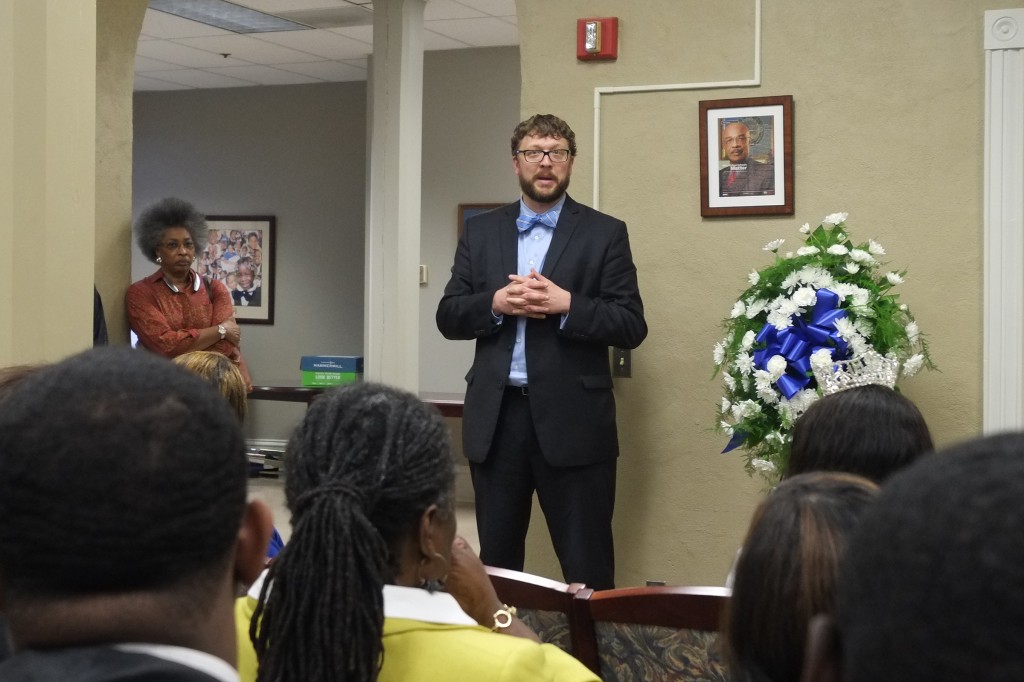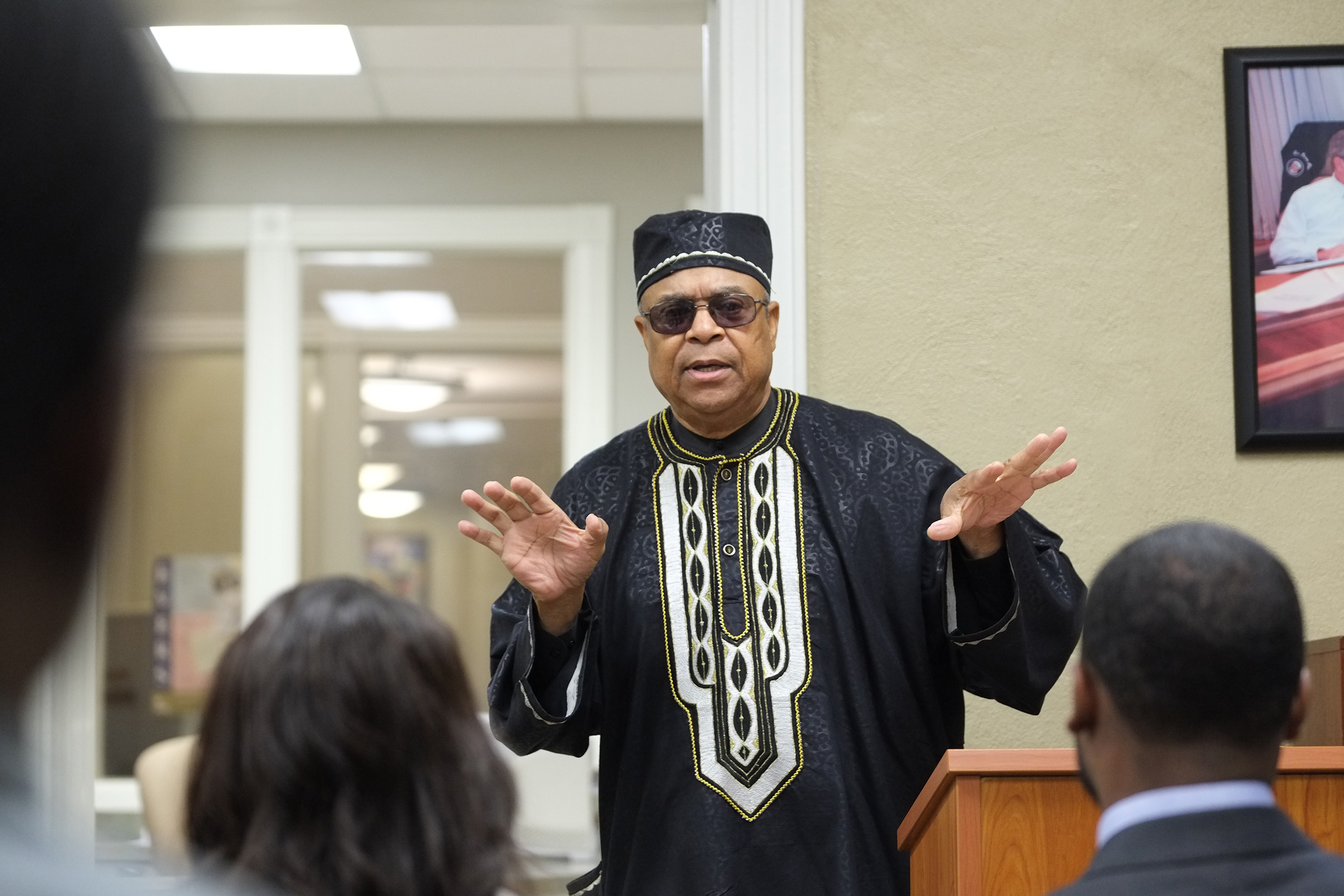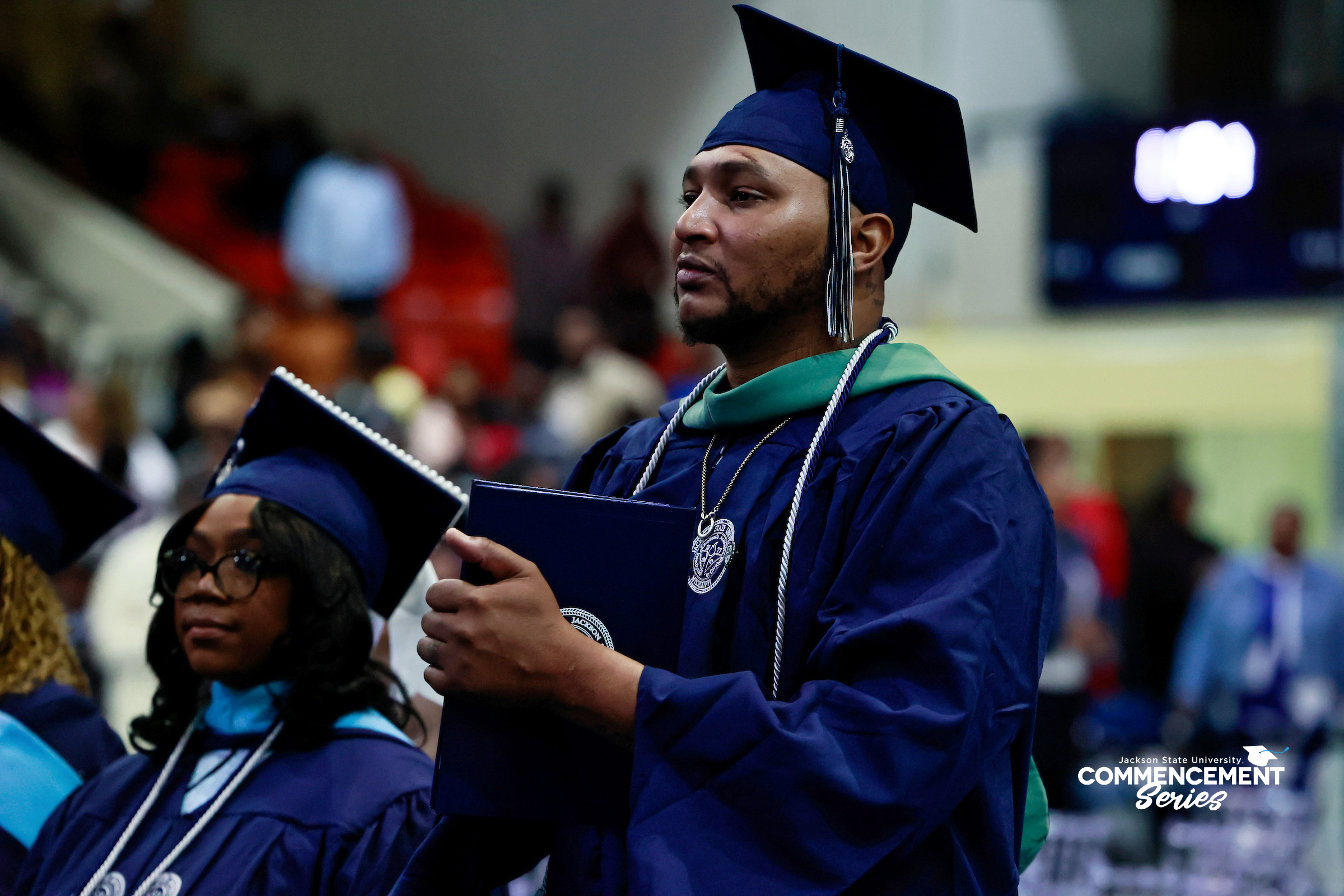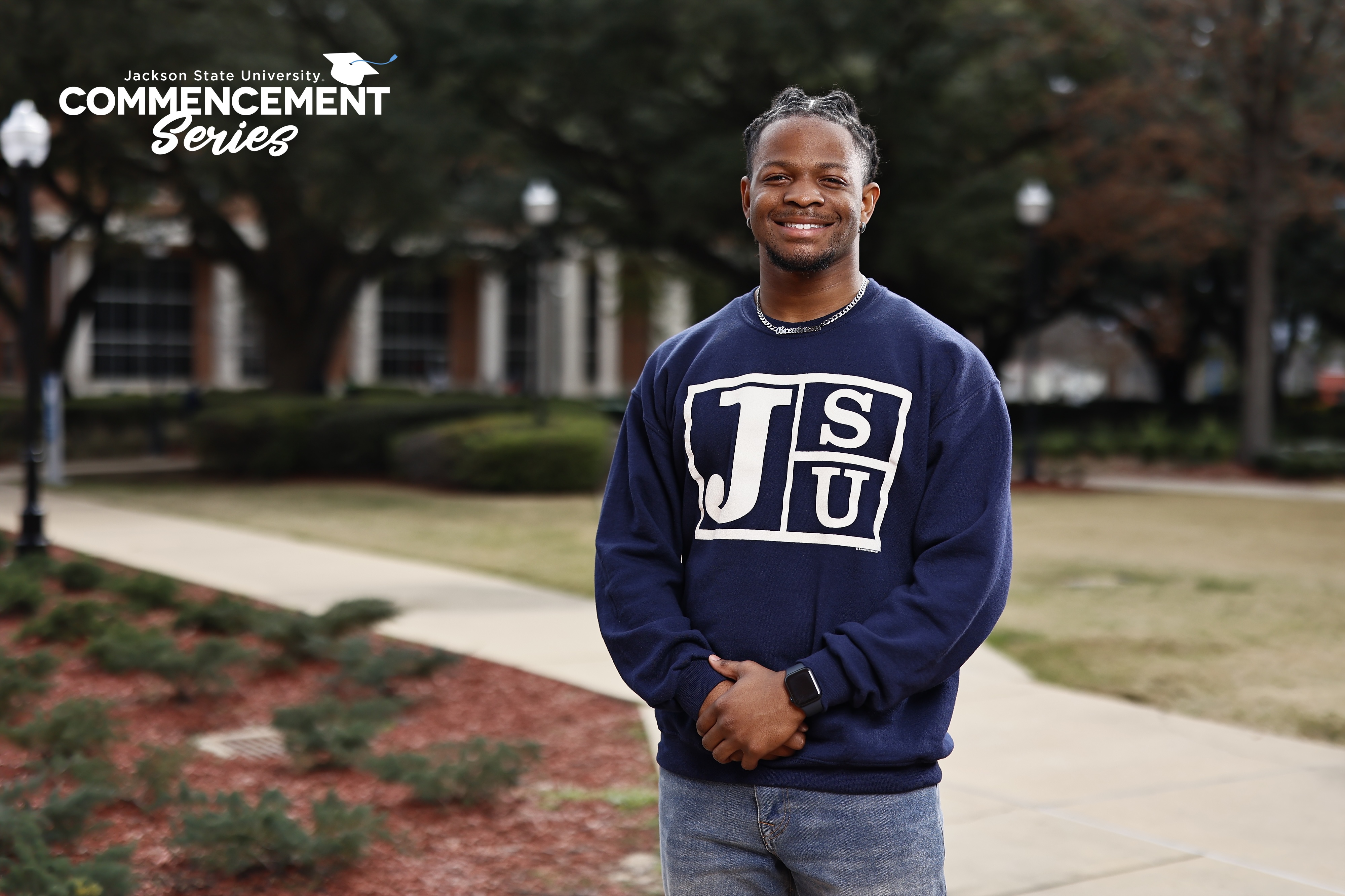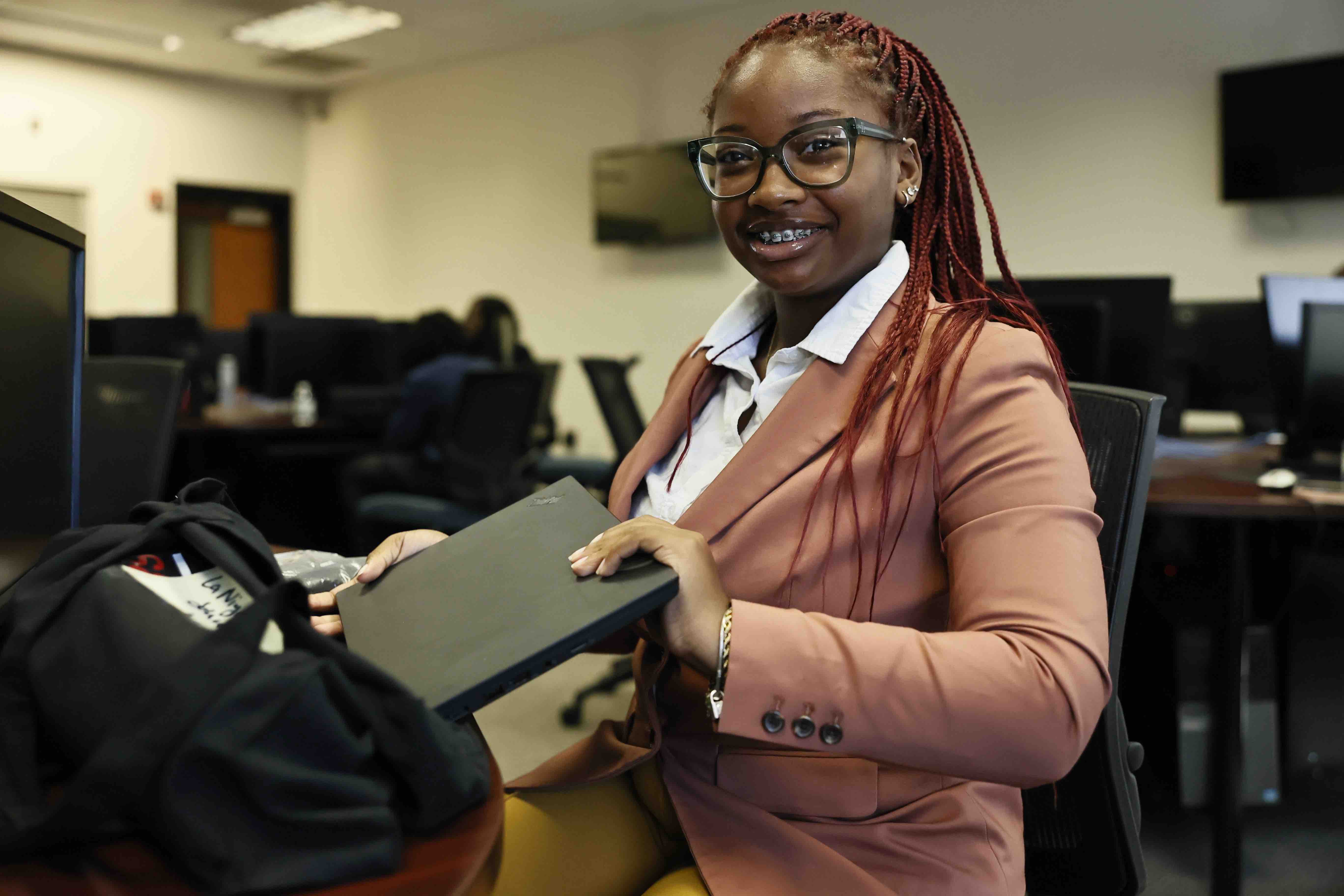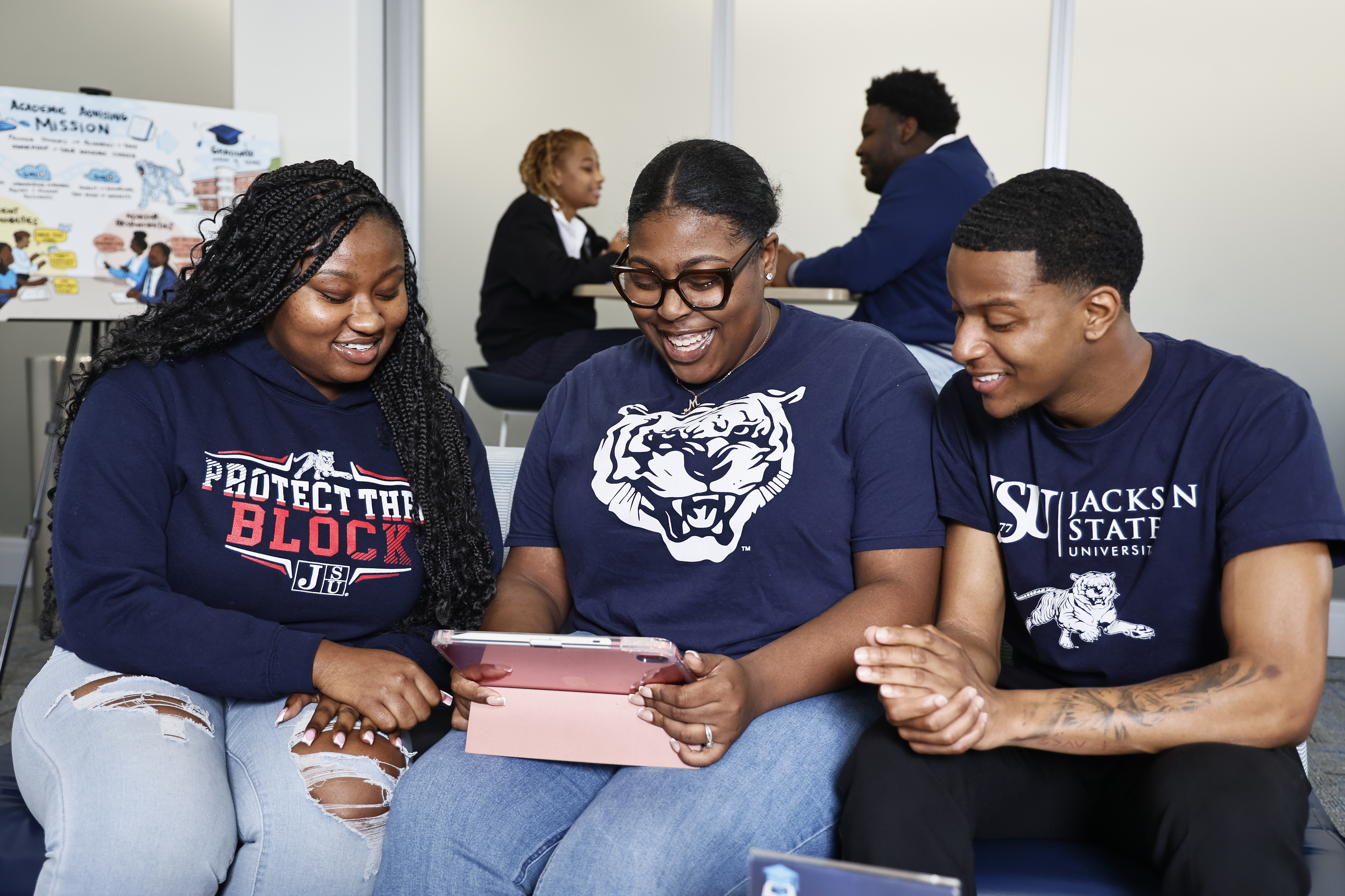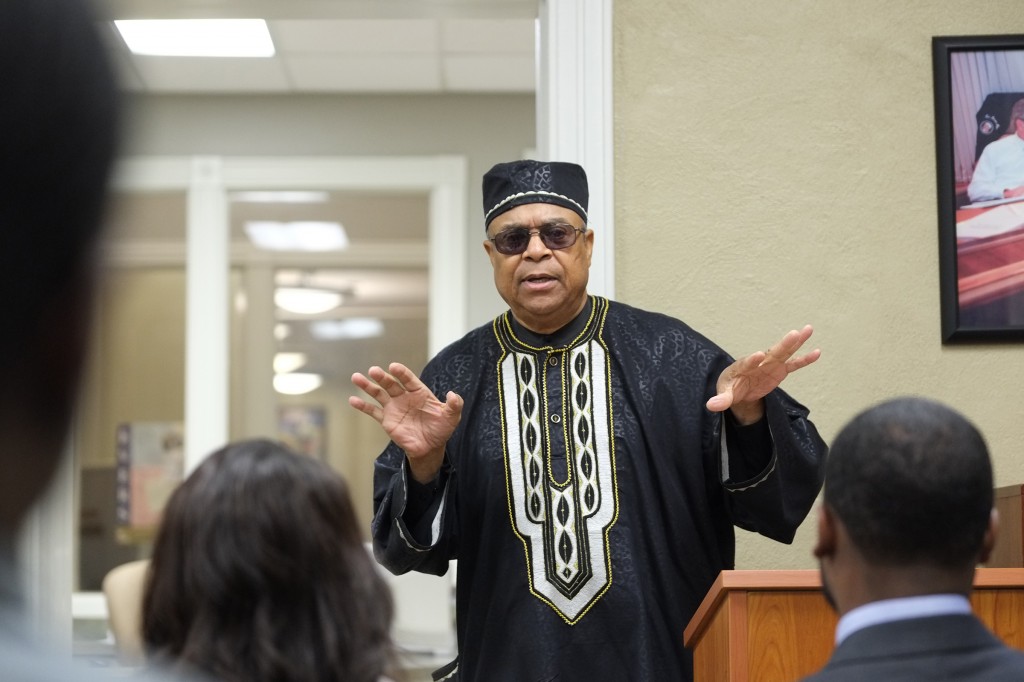
![]() After two people were slain by law enforcement during racial tensions at Jackson State College in 1970, a survivor said Thursday during the annual observance of the Gibbs-Green tragedy that he fought his own impulses to respond violently to the aggression that also left 12 people injured.
After two people were slain by law enforcement during racial tensions at Jackson State College in 1970, a survivor said Thursday during the annual observance of the Gibbs-Green tragedy that he fought his own impulses to respond violently to the aggression that also left 12 people injured.
Speaking at an event sponsored by JSU’s Margaret Walker Alexander National Research Center and the Student Government Association, alum James “Lap” Baker, 67, said, “I was so disturbed over the incident that I wanted to get my .22 caliber from my apartment, but my friends said, ‘Lap, don’t go back there. They will kill you.’ ”
He said calm among students was restored only when one of their peers, Gene “Jughead” Young, began reciting one of the Rev. Martin Luther King Jr.’s famous speeches, “I Have a Dream.” (Years later, Young would earn his Ph.D. and join the faculty at JSU. Before his death in 2011, he had worked in numerous academic and administrative roles, including having once served as acting director of the Walker center.)
[dropcap]B[/dropcap]AKER, reflecting on the theme “Upon These Shoulders We Stand: Remembering the Past,” urged young adults gathered inside Ayer Hall to always observe the anniversary of the tragic incident.
President Carolyn W. Meyers reminded students that they are the hope for the future and “to make sense of some of the insanity that’s going on right now. … You are extraordinarily blessed to grow your minds and perspective.” She called the events of 1970 world history and urged young leaders to focus on great accomplishments.
Also, speaking to the students, Dr. Robert Luckett, director of the Walker center, said, “This is an important event because this is your legacy. We cannot let anybody on this campus forget this.”
Forty-six-years ago, shortly after midnight on May 15, Jackson police officers and the Mississippi Highway Patrol fired a barrage of bullets into Alexander Hall, a female residential facility. Phillip Lafayette Gibbs, 21, a junior pre-law major and married father of an 18-month-old son and another on the way; and James Earl Green, 17, a senior at Jim Hill High School, were mortally wounded.
Baker said he and others had heard the patter of lawmen’s feet marching on campus, followed by an officer shouting, “May I have your attention, please.” Baker said at that moment a bottle was thrown and shattered. “When that bottle burst all hell broke through,” he said. Imitating the sound of gunfire, Baker said he and his friends crawled on the ground to avoid being shot as they heard screams and moans of the wounded.
He said the Lord had a reason for allowing him to survive, and “I thank him every single day.”
After the shooting rampage, he said he watched law enforcement pick up their shell casings.
“We cannot allow what happened on this campus to be forgotten,” he said. “Sadly, we often forget our history, and that’s part of the problem,” said Baker, who formerly worked as an adjunct instructor at his alma mater.
[dropcap]B[/dropcap]ECAUSE it was such a volatile period, he said he believes the horrific event was not spontaneous but calculated.
They shot up this campus in a planned massacre,” and he warned against allowing history to repeat itself. “You must be very conscious of these types of situations. Keep watch of what’s going on around you,” admonished Baker, as he reflected on recent incidents of police brutality and the Black Lives Matter movement. While making reference to the crusade against law enforcement abuse, Baker also raised concerns over black-on-black violence throughout the country. He suggested that violence perpetrated against one’s own race is just as alarming.
SGA President Rashad Moore described Baker as a blessing and a living history and also called for less intercultural divisiveness and senseless killings. “I would not be anything nor would I be here without the people who came before us,” he told the guest speaker.
Meanwhile, Miss JSU Charence Higgins implored her peers to embrace hard-fought advantages pioneered by individuals such as Baker. She said, “We have the opportunity to be educated at any school across this country, but I chose Jackson State University. I’m glad I did because I’m in a room with a person who understands that black lives matter.”
Dr. Vivian Fuller, associate vice president of Student Affairs, said events of the past are important because they “assist and guide individuals” in making a significant difference. Although tragedies are unfortunate, she said many often bring rewards. She asked the audience, rhetorically, “If you had to write your own obituary today, what would it say?” Among her suggestions for influencing history: Be objective and always express true feelings to others.
Before he concluded, Baker urged the audience of young leaders and followers to “set your goals, your objectives, your recommended actions … so that you won’t let another May 15 happen because of racism. Know that you are a descendant of royalty,” he said.
